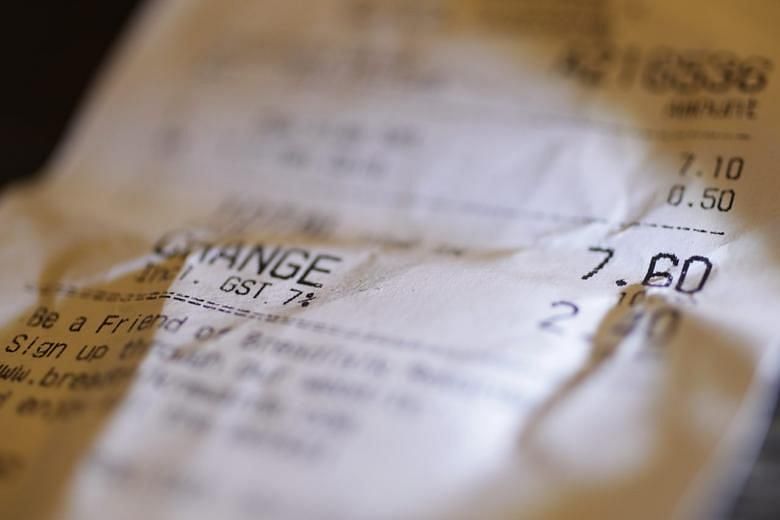Parliament: Exact timing of GST increase to 9% yet to be decided, says Heng Swee Keat
Sign up now: Get ST's newsletters delivered to your inbox

Finance Minister Heng Swee Keat said the increase is necessary in the light of needs in healthcare and other areas.
ST PHOTO: KELVIN CHNG
Ng Jun Sen
Follow topic:
SINGAPORE - The Government has yet to decide on the exact timing of the planned goods and services tax hike by 2 percentage points to 9 per cent, and it will exercise care in doing so, Finance Minister Heng Swee Keat said on Thursday.
"We will continue to monitor the prevailing economic conditions, spending trends and the buoyancy of our revenues carefully," he said, adding that when the hike kicks in, the Government will provide a transitional support package to help residents cope.
In a speech responding to 55 MPs who spoke over three days, Mr Heng noted the reservations that some had raised over the approach and timing of the GST hike, which was announced in last year's Budget and is slated to kick in some time between 2021 and 2025.
Ms Foo Mee Har (West Coast GRC) had urged the Government to delay the planned increase for as long as possible, suggesting that funds set aside in this term of government as well as the decision to use government debt to finance infrastructure could provide some leeway to postpone the hike.
But Mr Heng said the increase is necessary in the light of needs in healthcare and other areas. This decision, he stressed, was not made lightly.
In 2019 alone, the Health Ministry is expected to spend $6.1 billion to subsidise patient bills through existing permanent schemes enjoyed by all Singaporeans, he noted. This figure excludes further spending to boost healthcare facilities and medical research.
As a result, the base of healthcare spending has risen, said Mr Heng.
"As our population ages, spending on permanent healthcare schemes and other parts of the healthcare system will continue to increase structurally. Funding this requires a structural increase in our operating revenues," he said.
A GST hike is therefore necessary to support this structural increase in healthcare, among other critical needs like pre-school education and security, he said.
Such healthcare spending is also of "a completely different scale and nature" from cohort-based packages set aside for the Merdeka and Pioneer generations, he noted in his speech.
Following the speech, Workers' Party (WP) MP Low Thia Khiang (Aljunied GRC) sought clarification on how long this structural increase will last since the biggest ageing demographic now is the Merdeka Generation, which will diminish in number over time.
WP chief Pritam Singh added that his party was against the GST hike.
Last year, the WP said it supported the Budget, but voted against it because of the announcement on the GST. "This year, we support the Budget, but our position on the GST has not changed. And I just want to put that down for the record," Mr Singh said.
Replying to Mr Low, Mr Heng said that even though the medical doctors in the House will not have a definitive answer to Mr Low's question, the Government is carefully studying the variables that affect life expectancy and treatment cost structures.
"All I can say is that it is going to last for quite a number of years," he said.
Drawing laughter from the MPs, Mr Heng said each time he meets Health Minister Gan Kim Yong, Mr Gan comes up with a higher set of figures on healthcare costs.
Mr Heng noted in his speech that the GST tax increase is also similar to measures taken by other governments that face ageing societies.
"To address the growing fiscal burden from higher healthcare spending and demographic change, without further ballooning of public debt, there is a need for these governments to raise primary revenues," he added.
Member governments in the Organisation for Economic Cooperation and Development are estimated to require additional median revenues of 6.5 percentage points of gross domestic product by 2060. The planned GST increase of 2 percentage points is expected to raise Singapore's GDP by about 0.7 percentage point, he said.
Mr Heng, responding to Mr Liang Eng Hwa's (Holland-Bukit Timah GRC) speech on the role of surpluses accumulated in this term of government, said the monies will be reinvested into the national reserves. Half of the long-term returns from the reserves can be spent in future Budgets as part of the Net Investment Returns framework.
These contributions to the reserves are part of the Government's obligation to prepare for future uncertainties, he said, citing Mr Murali Pillai's (Bukit Batok) speech. "Any surpluses we have do not simply disappear at the end of the term."
Recalling his work as the managing director of the Monetary Authority of Singapore during the 2008 financial crisis, Mr Heng said surpluses and past reserves can help the Government provide targeted support to people who need help to tide over downturns.
"In planning for this financial year, we were also faced with the global economic outlook being downgraded by the International Monetary Fund (IMF), as global trade tensions grew," he said.
Last month, the IMF trimmed its global growth forecasts to 3.5 per cent for 2019 and 3.6 per cent for 2020, its second downgrade in three months.
Many commentators have in recent days said the cumulative surpluses over this term of government allows the Government to run deficits of up to an estimated $18.8 billion in the next two years.
Mr Heng said: "Fundamentally, we should not have the mentality of trying to spend everything that we have before the end of each term of government.
"As part of our long-term approach, we continue to review our plans and will deploy financial resources where necessary."

